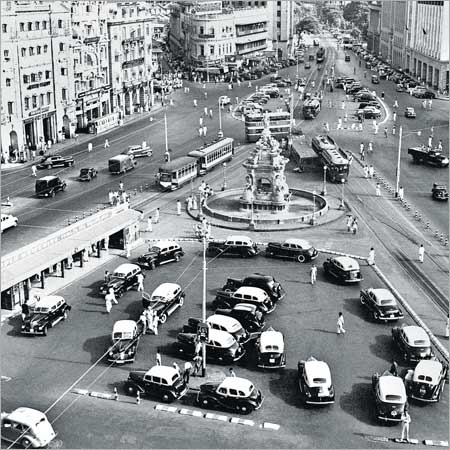९ में १८१४ - १७ ऑक्टोबर १८८२ - दादोबा पांडुरंग तर्खडकर
Biography Of Dadoba Pandurang TarkhadkarName : Dadoba Pandurang Tarkhadkar Social : Foundation of Marathi Syntax Date of Birth : 9 May 1814 Death : 17 October 1882  Dadoba Pandurang Tarkhadkar - Marathi Language DeveloperDadoba was teacher in the Elphinston Institute, Mumbai. Dadoba Pandurang was appointed as the Deputy Collector in 1852. Dadoba was interested in social & educational activity, they work with organization of Paramahansa Sabha, ManavDharma Sabha and the GyanPrasarak Sabha. Dadoba is also known as Panini (well-known Sanskrit grammarian) of Marathi language. Dadoba worked for the development of the Marathi language and also wrote a volume on Marathi grammar and in fact laid the foundation of Marathi syntax. | |
Dadoba Pandurang was associated with Bal Shastri Jambhekar when they studied together and lived at Bapu Chhatre’s house. He outlived Bal Shastri by 36 years. He acted as a link between the reformers of the early forties and was also associated with the reformers of the eighties. He was very much influenced by Ram Mohan Roy and other leaders of the Bramho Samaj. The movement that he started had however an origin and growth of its own.
Dadoba Pandurang was an educator. His grammar book acquired great popularity in Mahar. He was principal of gujarati schoool at Surat, then a part of Bombay Presidency. There he was joined by Dayaram Mancuram, one of the teachers of that school in promoting social reforms. They founded the Association of Religion of Manking (Manava-Dharma sabha) in 1844. In his book ‘Dharma Vivechana’ published in 1843 he had expressed his ideas about God and religion. The Association which was founded in 1844 practically borrowed its contents and formulated them as the tenets of the Association of the Religion of Mankind. The Association represented a universalism in religion and social life. This new religion was given a broad base of rationalism. This association could hardly survive after the departure of Dadoba from Surat in 1846. Jamshedkar had already attempted to remove some absurd features and superstitious beliefs under the name of religion. Dadoba went one step ahead and wanted a rethinking on this very sensitive and vital subject of common interest. Dadoba’s rationalism makes a special contribution to the thought of the western educated gentry in Bombay and the cities in Maharashtra. His campaigns against sorcerers and enchanters suggested that he considered it a duty of the educated people to clear the cobwebs of superstitions from the minds of the mass of people. The foundation of the ‘Paramhansa Sabha’ showed the way for others to follow. It was nor religion that was the chief... |
.jpg)

 The Amul girl and controversies!
The Amul girl and controversies! Your phone is private! Use these 10 tips to keep it private
Your phone is private! Use these 10 tips to keep it private Five places Salman Khan will miss in jail
Five places Salman Khan will miss in jail How Soviet light tanks swarmed the WWII battlefields
How Soviet light tanks swarmed the WWII battlefields Unmanned Russian spaceship falls on Earth
Unmanned Russian spaceship falls on Earth Know about people who won against Salman Khan in the hit-and-run case
Know about people who won against Salman Khan in the hit-and-run case Miley Cyrus - I'm okay with being alone
Miley Cyrus - I'm okay with being alone ‘Wonky’ Anushka makes ‘exhausted’ Ranbir Kapoor smell the ‘Pepsi’
‘Wonky’ Anushka makes ‘exhausted’ Ranbir Kapoor smell the ‘Pepsi’ Refurbished Russian Ka-31 helicopters delivered to
Refurbished Russian Ka-31 helicopters delivered to